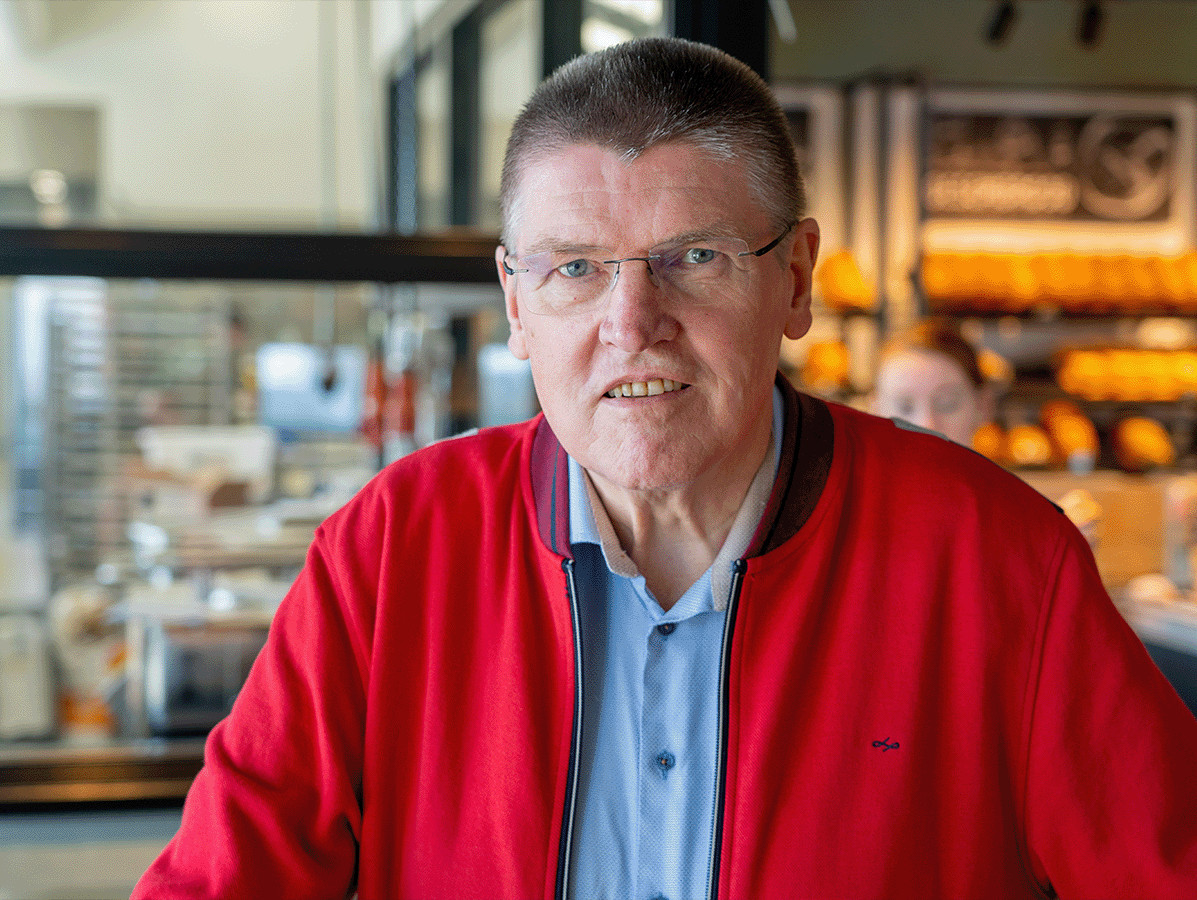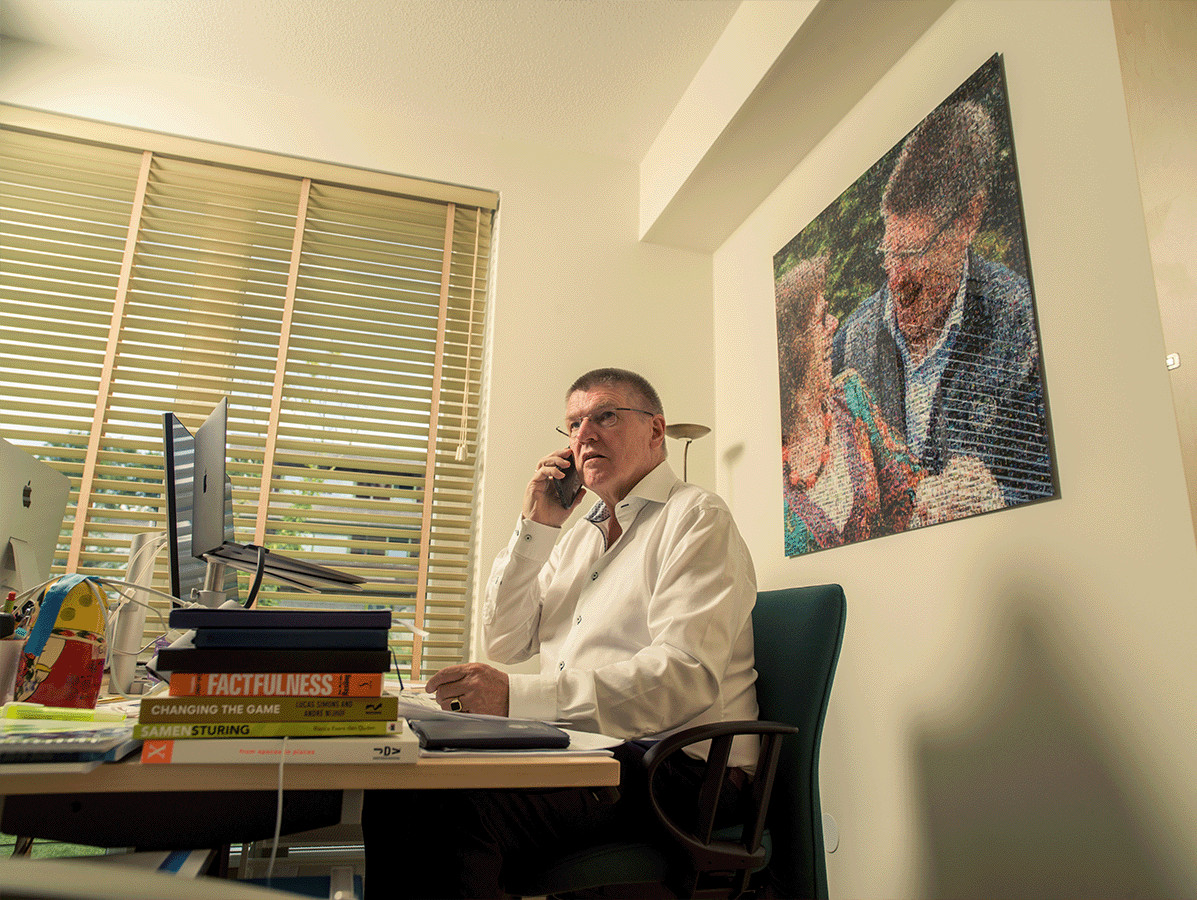
Jan-Willem Grievink, founder and former director of Food Service Institute Netherlands (FSIN), spoke at the ‘Retail meets Foodindustrie’ event on 16 June about the changing retail landscape and the many opportunities it offers for the Dutch food chain. According to Grievink, what many people forget is that you first have to look at the changes in society and changes in the values within that society.
'Daring to stay small, that's the challenge'
A good atmosphere, a rock-solid line-up of speakers and a celebration of being able to shake hands: Food Industry Experts 2022 was a great success. You should have been there'. For those who were unable to attend the event, we would like to put top keynote Jan-Willem Grievink back on stage. One of his conclusions was that you can prevent failures by looking at countries that are ahead of us. The United States, for example. Grievink: "Most of the successful innovations that we have on our shelves come from there. What else did Grievink have to say at the event?
"The problem with the food industry is that it is constantly coming up with innovations, of which more than nine out of ten fail. It has always been like that and it happens across the board, from Unilever to Zwanenberg. That's a shame, because you're losing billions."
"It starts with a good overview of what is going on at all levels; I refer to this as 'the trend funnel'. First of all: what is changing in society? I see a number of striking things. Society is embracing new technologies. This has been accelerated by the corona pandemic, just think of the fact that we have all started to zoom. We are also seeing more and more one-person households. The last Baby Boomers have just gone into retirement. That all leads to changes in what we find important. Making life easier, for example.
What has also changed is that we all have opinions about everything. Values change. Especially the young, the digital natives, are used to apps and social media. They communicate in a very different way than we used to. The result is that as an industry you can no longer get away with just doing what you like. These young people - and not only they, by the way - also show a completely different eating pattern. They eat more often throughout the day. It may be smaller portions, but we do eat too much.

"Absolutely. The industry is increasingly having to deal with a lack of security of supply. This already existed, but the war in Ukraine has only increased this uncertainty. So the counterforce you hear is 'we need to get a better grip on our supply chain'."
" One could talk about that all day, but I will limit myself to the eight most important trends. Convenience is still number one, and it is becoming increasingly important. We want to enjoy ourselves, so we attach great value to the experience. Health is key and this concerns both care (how to stay healthy) and cure (how to recover). Glocal' is a bit of a contradictory trend, but we are excessively interested in products that come from far away and are grown or manufactured around the corner. Our food must be pure, with as few additives as possible. As a result, it has a shorter shelf life and must therefore be ultra-fresh. Circularity, and the related issue of packaging, is high on the wish list. The industry needs to have a good story to tell. Many consumers want to illustrate their outlook on life through what they eat. This applies to a vegan just as much as to someone who goes for a good quality piece of meat. And finally, the distrust in the food industry - partly due to programmes such as the Dutch Food Inspection Service - is high. You have to respond to this by providing maximum transparency, however difficult that may be at times.
"By looking at countries that are ahead of us with their trend funnels. The United States is the most important example. Anything that survives there, that maintains its right to exist for a longer period of time, has a good chance of succeeding here. Most of the successful innovations that we have on Dutch shelves are American successes. In fact, even the concepts of 'supermarket' and 'fast food' come from the USA.
Nowadays, it takes us three to four years to adopt these concepts. Do you think that is long? Well, it used to be much longer. It simply takes a while to get the chain in order and you also have to adapt it culturally. My tip one, two and three: go and look in the United States! See what is successful there."
"Consumer behaviour is changing. The Millennials and Generation Z will make up half of the population in 2030. They are the ultimate convenience generation. They hardly ever cook. If they do, it is once a month, with a Youtube tutorial on the counter. They think health is important, but they are also allowed to 'sin' twice a week. This desire for convenience means that they eat out much more, even though they spend considerably less per meal than my generation. Convenience at home means doing your shopping via a express delivery service, or having ready-made meals delivered. In other words, 'simple eating out at home'. All the time saved is worth money, and that offers opportunities to the industry."
"That involves what is changing in the market itself. Corona has added over 4 billion euros to supermarkets' turnover and 7.5 billion euros to specialist shops and the catering industry. The money that the consumer kept in his wallet is now partly being spent again, just look at the full terraces. The supermarkets have lost some of their turnover. But I am convinced that the hotel and catering industry will not get back the entire amount from before the crisis.

"Many specialist shops will not survive. The ones that remain are doing something very special. They will have to reconsider their old-fashioned opening hours, because young people are interested in special products, but don't want to be standing in front of a closed door at 7.30pm.
‘Time savings are worth money. That offers opportunities to the industry'
The supermarket is facing a major revolution. Most of the weekly shopping is going online, which is an assault on the existing revenue model. Supermarkets will have to make the switch to small daily errands. Get something small, eat something. They will also have to take on a role as supplier to the small, local catering industry. The to-go convenience stores will continue to grow like a rocket. That goes without saying."
"Supermarkets want to break away from mainstream products a bit and are looking for traditional chips or - muesli, for example. That offers opportunities. Just think of the success of small town beers with all kinds of artisanal products popping up. Local supermarkets have increasingly more room to buy local products. If you have a story to go with it, it can score very well. And it can be done across many categories. Mustard, liqueur, salads, pudding from grandma, olive oil from Crete from the farmer where the supermarket entrepreneur always goes on holiday. Or you can collaborate with an award-winning baker nearby."
"Responding to the need for small suppliers, ultra-fresh, local products with local stories. My advice is therefore: don't lose your cool if you can't get in through the head office of the supermarkets, but find your way in through the local supermarkets. If you are in there and can demonstrate success, the impact will spread from there. You are your own worst enemy. If you are successful, if you grow, if it becomes 'industrial', then your charm - and therefore your competitive advantage - is gone. You have to dare to stay small!
Source: Vakblad Voedingsindustrie 2022